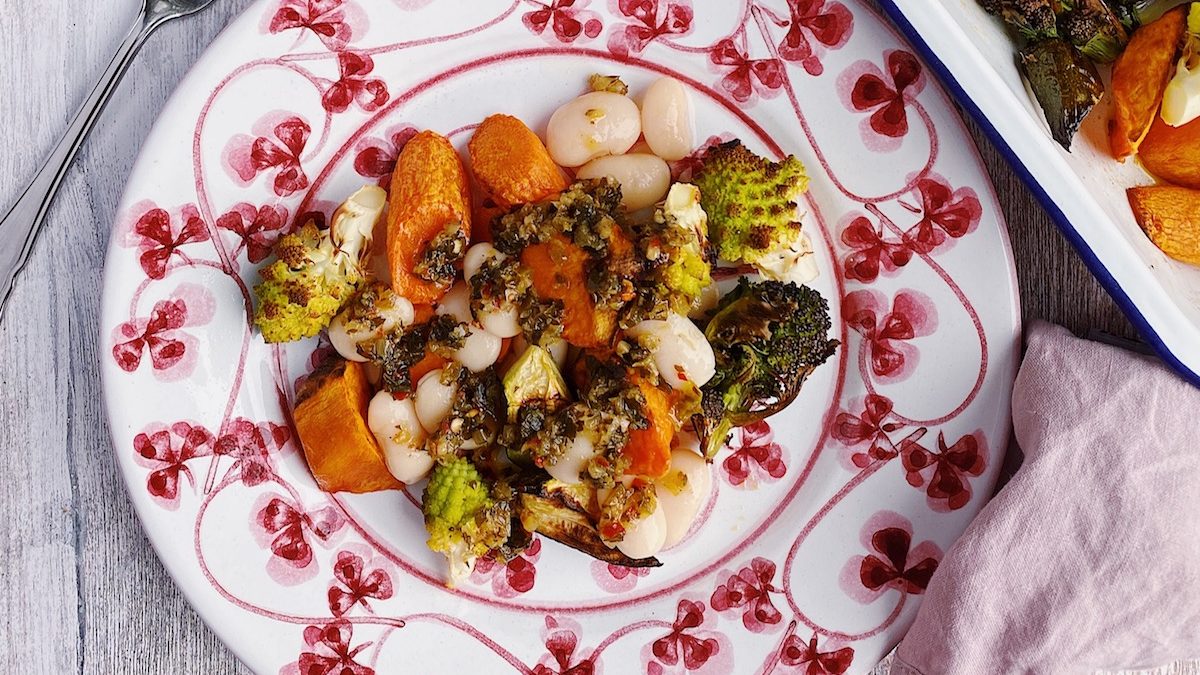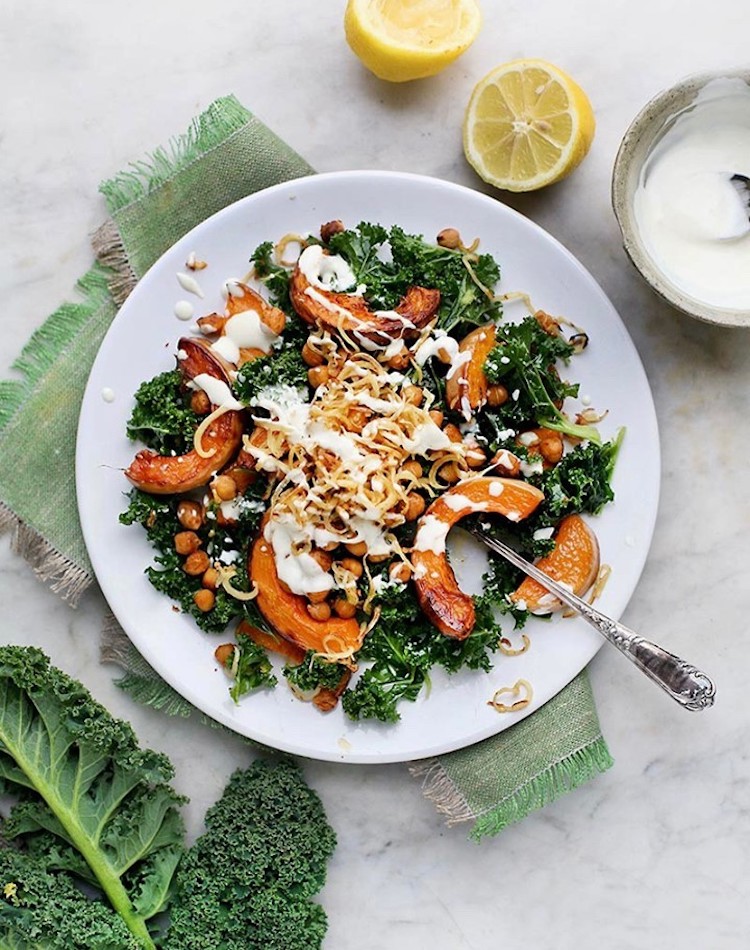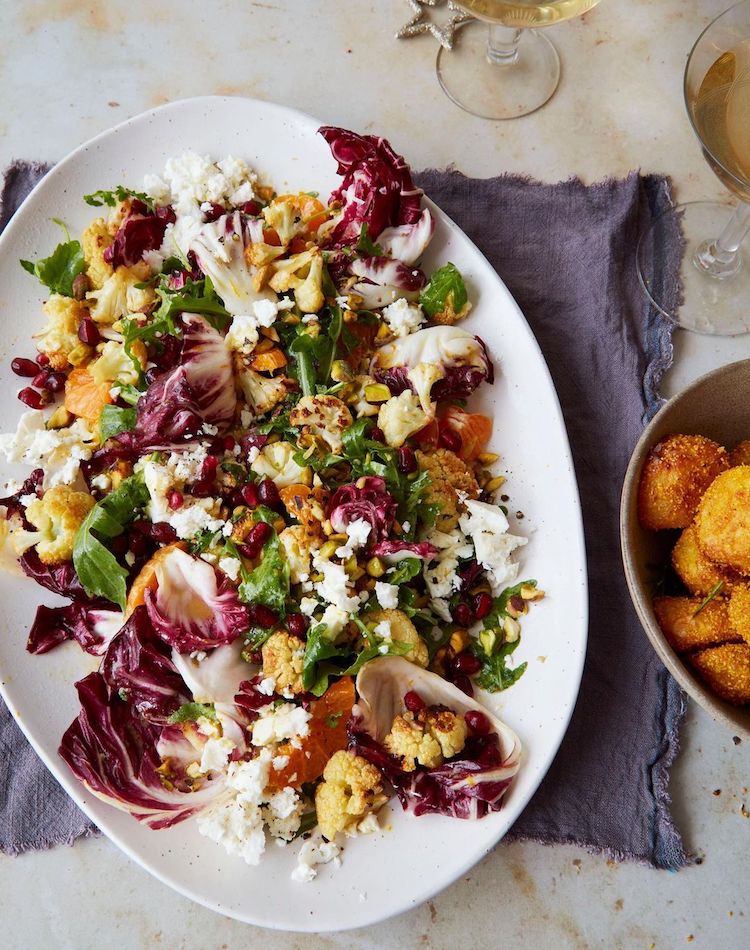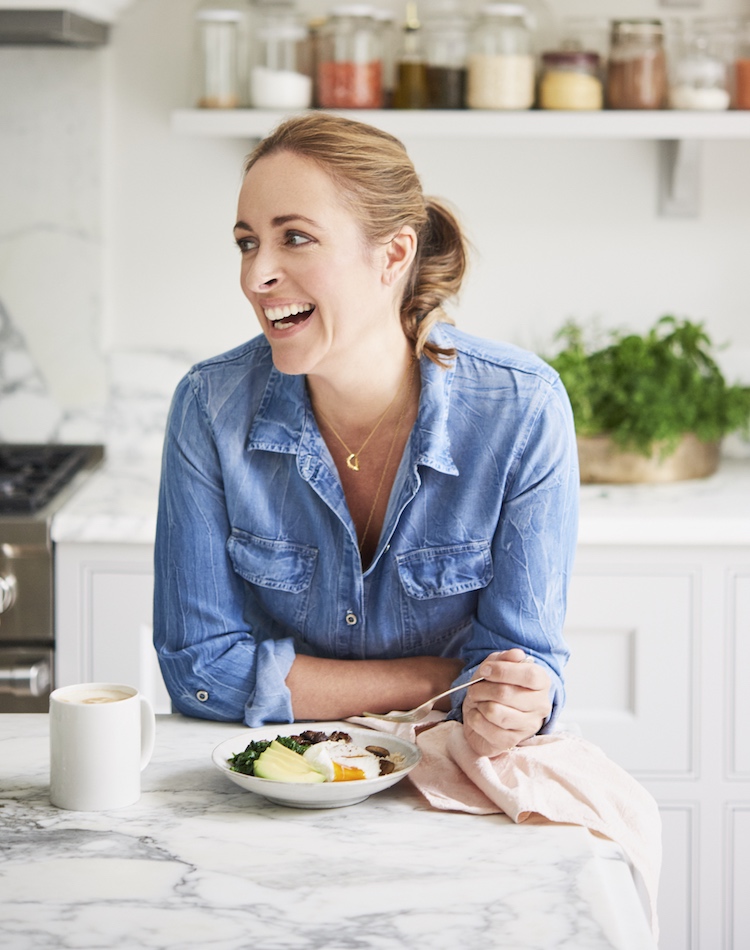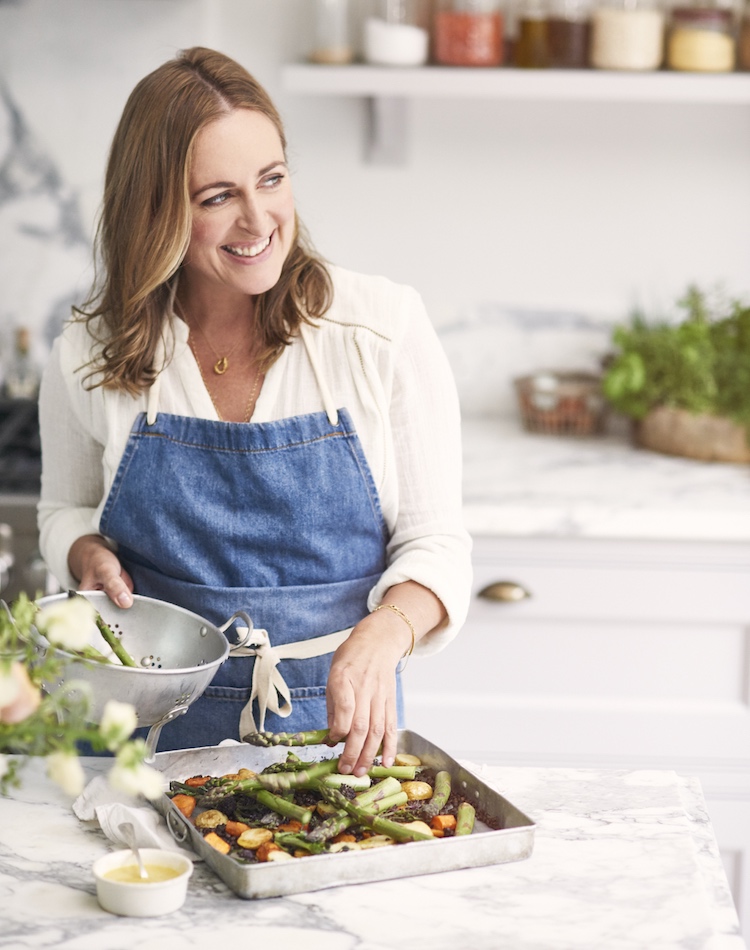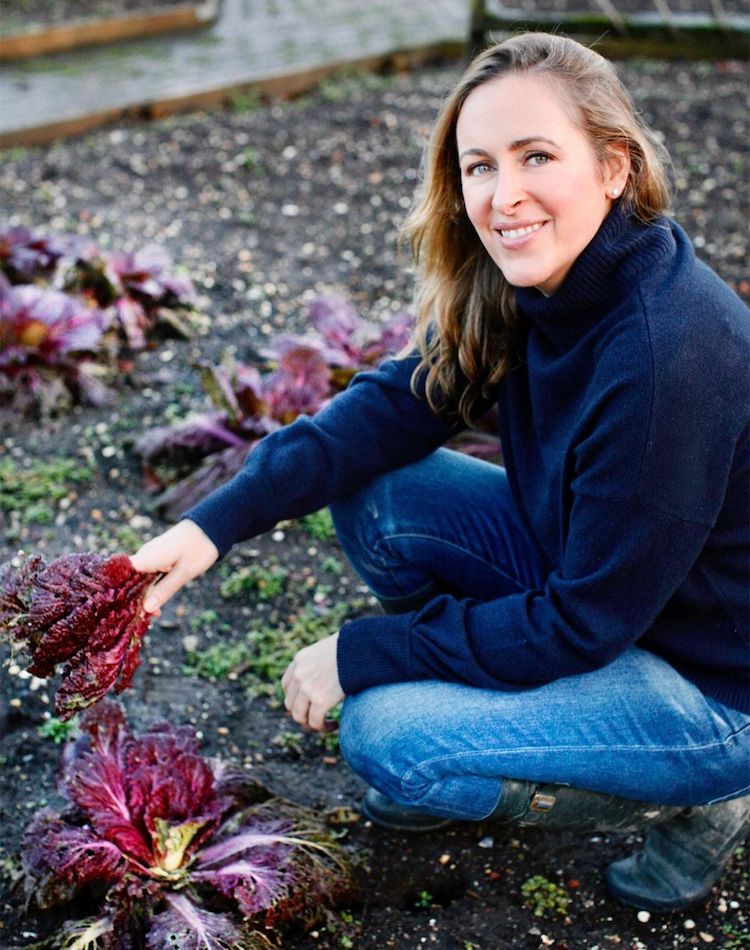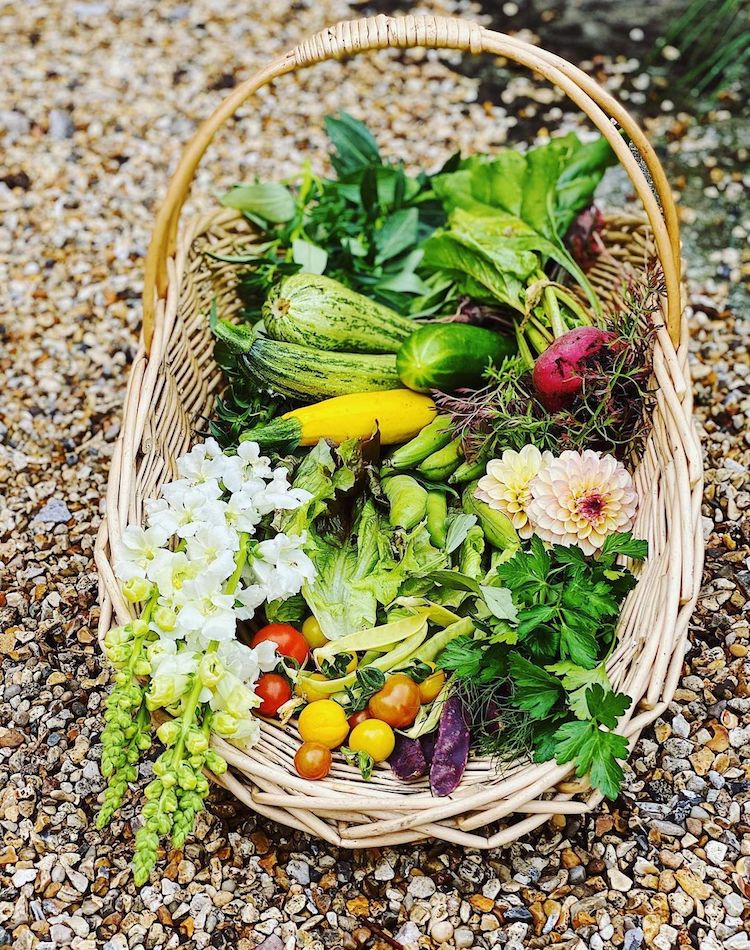‘We Need Good Food To Thrive’: Amelia Freer on Vegan Meals and Living off What You Grow
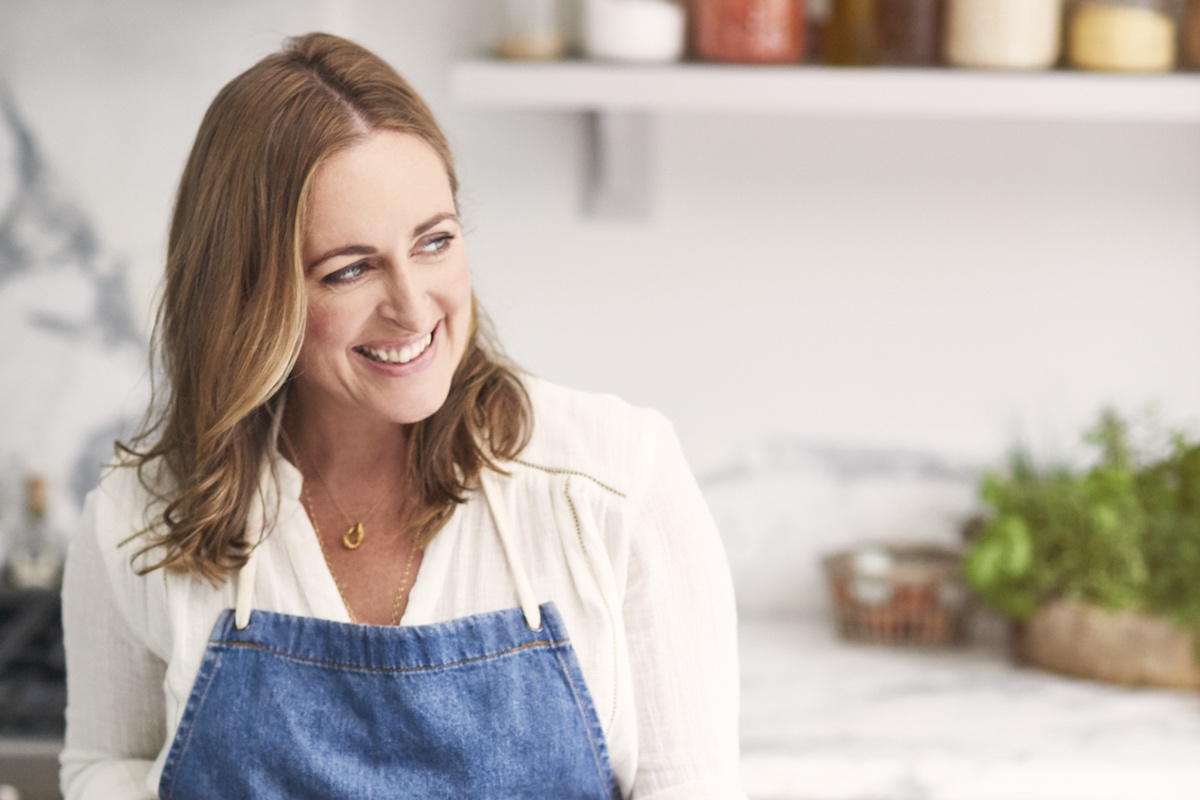
A lot has changed in the last year, including our diets. According to a 2020 survey, 19 percent of us were opting for more natural, less processed foods, and over 22 percent had increased their consumption of fruit and vegetables.
With restaurants shut, you may have found yourself relentlessly browsing for recipes. Or, perhaps you went down a Google-led rabbit hole researching the links between your wellbeing and eating habits. You’ve quite possibly stumbled upon the work of Amelia Freer then, one of the UK’s leading nutritional therapists and healthy eating experts.
Across her four best-selling books, Freer has dissected the principles of healthy eating in an easy-to-relate manner that’s found a devoted audience among those worn-down by buzzword-heavy diet culture. Intertwined with this advice, her recipes offer up a fresh and delicious way of cooking healthy that bucks the idea of it being all celery sticks and cups of green tea.
Freer is also a big believer in cooking and eating sustainably sourced, organic food, and encourages foraging for and growing your own vegetables whenever possible.
While others may flit in and out of foodie trends, Freer has used her expertise to set aside the good from the bad, and remains dedicated to a lasting, healthy lifestyle. She has the answers to plenty of questions, some of which she shared with Form when we caught up with her to talk all things homegrown and vegan.
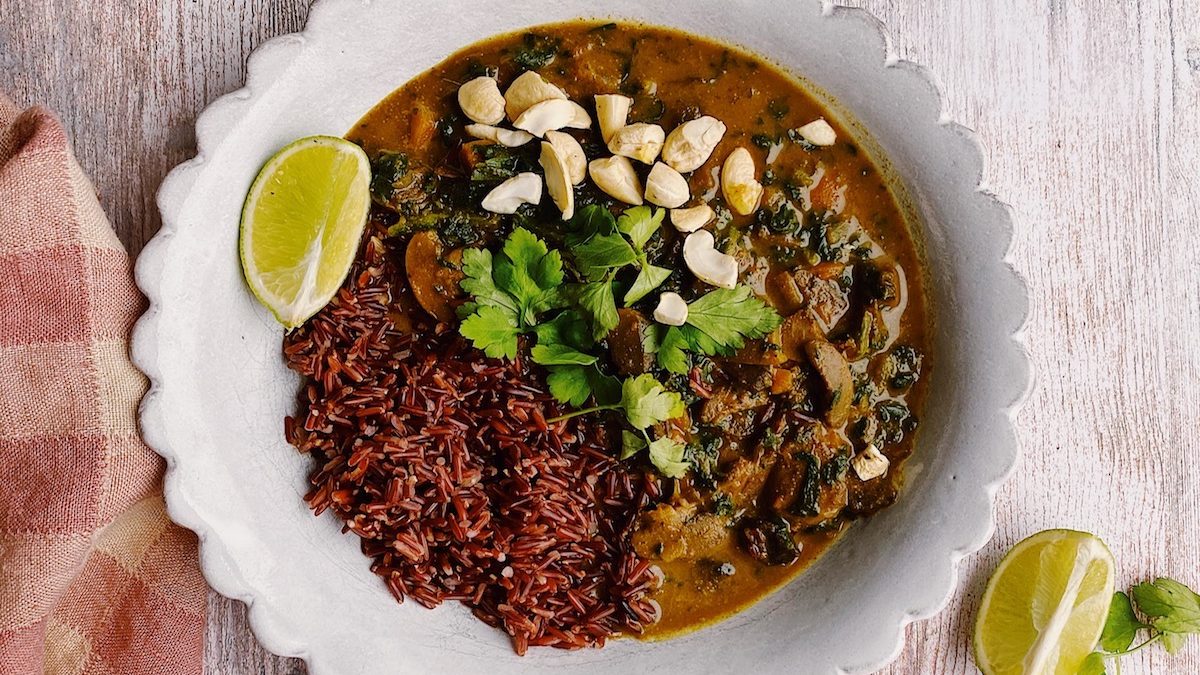
-
What made you fall in love with food?
I am not a natural-born foodie. My interest in food came more from necessity to begin with. In my twenties, I was suffering from a whole host of health problems, and after trying seemingly every treatment under the sun, my flatmate at the time suggested that perhaps I might like to take a look at my diet.
I eventually took myself off to see a Nutritional Therapist, and on her advice made some tweaks to my eating habits. The transformation was so fast (and so surprisingly simple) that I never turned back. My love of cooking, food, and subsequently growing, all stemmed from that positive change I experienced.
I then went on to study Nutritional Therapy for four years, and have been practising for about 15 years now.
-
What inspires you when it comes to creating new dishes?
I get inspiration from all over, but primarily it comes from the fresh produce that is in season, either from my kitchen garden or from the organic vegetable box delivery that I get weekly. I always try to fill half my plate with vegetables at every meal, and work up from that.
But, I do love to browse the aisles of farm shops for inspiration and new things to try, and of course, you can’t beat a bit of Pinterest scrolling.
-
When are your kitchen essentials?
I always have good extra virgin olive oil, lemons, chilli flakes, and sea salt close to hand in my kitchen. These are simple ingredients that can utterly transform a freshly picked salad or a delicious plate of steamed vegetables.
To make a more substantial meal, I keep lots of jars of cooked beans like chickpeas, butterbeans, and cannellini beans, as well as coconut milk, which is perfect for a curry. I’ll also have whole grains like brown rice, quinoa, and oats, and packets of nuts and seeds. I’m rarely without a big jar of tahini too. I find that it makes the creamiest, most delicious dressing.
-
What is your go-to vegan restaurant if you’re not eating at home?
It feels like such a long time since I went out to eat anywhere. With a toddler to look after, we don’t get much opportunity to eat out nowadays, so I tend to cook at home most of the time even without a lockdown.
I do miss strolling down the aisles of some of my favourite supermarkets like Whole Foods Market which always has an amazing selection of innovative and vegan offerings. I also absolutely love the restaurant Jikoni in London and have enjoyed some incredible vegan and vegetarian deliveries from there recently.
-
What would you choose to eat if you could only have one thing over and over again?
I think I could happily eat a salad every day of the year, so long as the ingredients changed according to the seasons – I don’t mind. I love juicy tomato, cucumber, herb and black olive salads in the heat of the summer sun, or warm roasted kale, chickpea and pumpkin salads in the depths of winter.
There is such wonderful variety when it comes to salads, not to mention the dressings. A far cry from limp Iceberg lettuce.
-
You talk a lot about nourishing our bodies to ensure we are functioning optimally. How important is it that we know what foods we are consuming, and what effect does this have on our bodies?
I think it is incredibly important to be conscious of the basics of nutrition. Our body needs food to survive, but we need good food to thrive. A balanced diet, abundantly filled with colourful fruits, vegetables, high quality vegan protein sources, healthy fats, nuts, seeds, wholegrains and water forms the basis of this, but it is so helpful to have a bit of understanding about why this matters, and how to put it into practical action.
-
Is there anything you’d change when it comes working with food in your career?
I really love my job, especially when I get to meet people face-to-face either in clinic or at events. However, I do struggle with the social media aspect of my work, especially as food is such an intensely personal and emotional topic. I’m still trying to find a happy medium between sharing my private life at the very heart of my family – the kitchen table – and maintaining appropriate boundaries between work and home.
It feels like those boundaries are very blurred when it comes to social media, and that can certainly sit uncomfortably with me. It’s a work in progress to find that balance, but something I think it’s probably important to speak about. Real life is not Instagram life.
-
What is the most important lesson you’ve learned when it comes cooking to vegan food?
From a nutrition perspective, I’d say the most important thing when it comes to a vegan diet is to be informed about where certain important nutrients can be found from plant-based sources, including which nutrients may need supplementing according to your unique personal requirements. One of the simplest ways to help find this nutritional balance is to eat a wide variety of plant-based foods, ideally as minimally processed as possible.
This also helps to introduce a variety of tastes, textures and flavours too, ensuring meals are as exciting and deliciously varied as they can possibly be.Thankfully, there are so many more vegan options now available to buy, especially for those moments when we need to grab something quick and easy.
-
What’s one myth around healthy eating that you’d like to bust?
That we have to do everything all-at-once when making healthy changes to our diets. I believe quite the opposite is true. Making small, step-wise changes over time, and sometimes over years, is ultimately the most effective and sustainable way to make a substantial impact to our diet and health.
Amelia Freer’s 5 Top Tips For Living Off Of The Food You Grow
Don’t Be Afraid Of A Bit Of Trial-And-Error
You won’t get it all perfectly right the first time, but the joy of growing is that there’s always another chance to try again next season.
Grow What You Love To Eat
There’s no point in growing masses of cabbages or radishes if you really love raspberries and lettuces. Try to prioritise your growing space according to the foods you love, ones that are hard to find in the shops, or that you use most often.
Don’t Worry If You Don’t Have A Garden
There are incredible ways to utilise a balcony or your window sills. Don’t forget about your vertical spaces too. There are some brilliant wall-based growing systems now available.
Experiment With Your Cooking
Try experimenting with different techniques in the kitchen to make best use of an excess of one product, from pickling or freezing to sharing with friends or making jams. These methods help to prolong the length of time you can enjoy the produce you’ve put all that time and effort into growing, and minimise food waste.
Be Realistic
Self-sufficiency is pretty much a full-time job, so think about how much time you have to spare for growing, as well as how much space you’ve got available. Having said that, once you start, you may well find that you love to spend as much time as possible tending to your plants. Growing has a habit of really getting under your skin.
How To Make Amelia Freer’s Roasted Parsnips and Carrots with Cumin and Green Tahini Dressing
“This is a simple dish to serve as the main event,” says Freer. “If you can get hold of some different coloured, heritage carrots, then this makes the dish look extra special.”
Ingredients
- 600g parsnips, peeled and halved lengthways (or quartered if they are particularly big)
- 600g carrots, peeled & halved lengthways
- 1 tsp cumin seeds
- 2 tbsp olive oil
- Salt and pepper
For the dressing:
- 2 tbsp tahini
- 1 lemon, juiced
- 1 handful fresh coriander
- 1 handful baby leaf spinach
- 1 clove garlic, peeled and crushed
- 6 tbsp water
- A pinch of salt
To serve:
- 1 handful coriander leaves, roughly chopped
- ½ lemon, zested
Method
- Heat the oven to 200°C.
- Put the parsnips, carrots and cumin seeds into a roasting dish. Drizzle with olive oil and add a pinch of salt. Mix well, then roast for 20 minutes. Using a spatula, flip them over and roast for a further 15 minutes or so, until cooked through and starting to go crisp and golden at the edges.
- To make the tahini dressing, put all of the ingredients into a blender and mix well until smooth and creamy. You’re aiming for a thick pouring consistency. Add a little more water if needed.
- To serve, drizzle the dressing over the vegetables and grate a little lemon zest on top (if using) and add a few fresh, torn coriander leaves.
